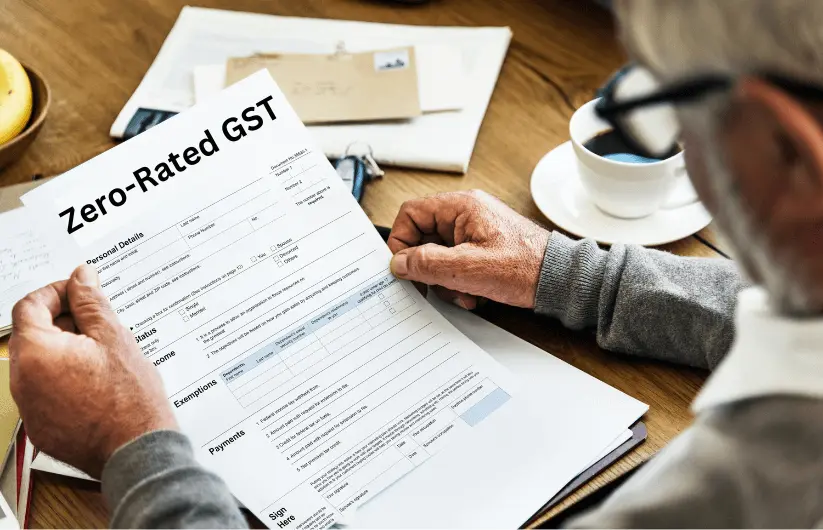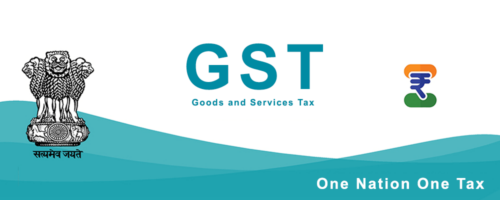In the ever-evolving landscape of global business operations, the emergence of Employer of Record (EOR) services stands out as a strategic and adaptive solution for effectively overseeing a diverse and geographically dispersed workforce So it is important to know the taxation around this service.
Every country has its acts and laws for foreign businesses which can become an obstacle to expansion. However, the multifaceted nature of EOR operations introduces a particularly intriguing dimension related to the potential No GST.
The implementation of the Goods and Services Tax (GST) framework in India on July 1, 2017, represents a significant change in the indirect tax landscape of the nation, with a special focus on business-to-business (B2B) interactions. For the provision of goods and services, the Goods and Services Tax (GST) replaces a complex tax structure with a simplified, destination-based taxation system.
What is GST in India?
Goods and Services Tax (GST) in India stands as a pivotal aspect of the modern tax landscape, fundamentally altering the taxation paradigm. It is a consumption-based tax, meticulously levied at every stage of the production and distribution chain, with the ultimate tax burden borne by the end consumer. GST’s strength lies in its comprehensive, multi-stage, and destination-based nature, ensuring transparency and efficiency in the tax system.
Unlike Value Added Tax (VAT), GST in India boasts a more intricate structure with a robust input tax credit mechanism, minimizing the cascading effect of taxes. Embracing both goods and services, GST eliminates the need for businesses to draw artificial distinctions, fostering a more seamless tax system.
Two Categories of GST in India:
Integrated GST (IGST), which applies to interstate transactions, and central GST (CGST), which is overseen by the central government. State GST (SGST) is administered by each state and union territory concurrently for intrastate transactions. In addition to ensuring ease of compliance and lowering tax cascading, this two-tier system promotes a cooperative federalism model in which the federal and state governments share tax revenues. The unified and transparent nature of GST is conducive to fostering efficient business operations, promoting economic

growth, and facilitating a more coherent tax ecosystem across the diverse business landscape in India.
This intricacy necessitates a comprehensive grasp of GST intricacies, a discerning analysis of its distinctions from Value Added Tax (VAT), a detailed exploration of GST slabs, and a meticulous examination of various scenarios that may lead to the no GST for EOR services.
Understanding these facets becomes imperative in navigating the complexities of modern international business environments and leveraging the advantages offered by EOR services within the framework of taxation regulations.
How GST is Different than Value Added Tax (VAT)?
While GST and Value Added Tax (VAT) share the essence of being consumption taxes, their structural disparities are pivotal. VAT, often considered a single-stage tax, lacks the seamless integration across various production stages that characterize the multi-stage nature of GST. The latter’s all-encompassing approach includes both goods and services, streamlining the taxation landscape.
What are the Slabs of GST in India?
The stratification of GST into different slabs based on the nature of goods and services is a critical aspect of its implementation. As of the last update in 2022, these primary GST slabs were delineated as follows:
0% (Zero-rated): Encompassing essential goods and services to ensure affordability.
5%: Applied to items of mass consumption and certain services.
12% and 18%: Standard rates for most goods and services.
28%: Reserved for luxury items and specific goods and services.
The government has the authority to impose an additional cess on goods deemed as harmful, exceeding the maximum rate of 28%. This cess serves a dual purpose: it aims to dissuade consumers from indulging in such products and provides the government with extra revenue in times of emergency. Beyond these slabs, certain items remain outside the GST purview, while others benefit from the complete exemption.
Five No GST Scenarios in India
The Zero-rated GST is strategically applied to specific categories of goods and services, safeguarding their accessibility and affordability.
Five Prevalent Scenarios of No GST Include
Healthcare Services:
They are ensuring that medical services and healthcare remain exempt for widespread accessibility.
Education Services:
Exempting educational services from GST, particularly those offered by recognized institutions.
Basic Food Items:
Essential food items, like fresh produce, enjoy zero-rated to uphold the affordability of necessities.
Public Transportation:
Encouraging the use of public transport by exempting services provided by public transportation agencies.
Financial Services:
Certain financial services, such as banking and insurance, may be exempt to facilitate seamless financial transactions.
When is the Employer of Record (EOR) Service Zero-rated for GST?

Delving into the technical intricacies, we now scrutinize the conditions under which Employer of Record (EOR) services may secure GST exemption. Certain goods and services are zero-rated under India’s Goods and Services Tax (GST) regime. This renders them exempt from the tax as they are subject to a GST rate of 0%. Exports are one of the primary categories of zero-rated supplies in India. To increase exports and encourage competition in the global market, goods and services that are exported are zero-rated. Apart from exports, there are other categories of zero-rated supplies under
GST. Among the instances are: Supplies to Special Economic Zones (SEZs): To promote economic development in these designated zones, goods and services delivered to SEZs are usually considered zero-rated.
The convergence of EOR services and No-GST signifies a suitable pathway for companies seeking efficiency and compliance in their international workforce endeavors. This detailed analysis highlights the need for businesses to understand tax planning and regulations when managing a global workforce.
1. Supplies to a Merchant Exporter
A supply is deemed zero-rated when it comes from a registered supplier to a merchant exporter who plans to export the products.
2. Supplies to Special Economic Zones (SEZs)
To promote economic development in these designated zones, goods and services delivered to SEZs are usually considered zero-rated.
3. Zero-Rated Supply for Cross-Border EOR Services
In cross-border EOR services managing an overseas workforce, the prospect of zero-rated supply emerges. A GST rate of 0% for such services could confer a tax-free advantage, particularly beneficial for companies engaged in global expansion via EOR services.
4. Employment Agency Services Exemption
Certain jurisdictions exempt services provided by employment agencies from GST. If EOR services fall under this classification, a basis for No GST may be established. The specific categorization, however, hinges on local tax regulations.
Conclusion
EOR is zero rated or there will be no GST only if the business is happening in a different country or if the foreign currency is used in the deal. Remunance’s Employer of Record (EOR) service streamlines your entry into the Indian market without needing a local business entity. We recognize the pivotal role of a remote team in managing global business operations and emphasize the significance of retaining skilled resources.
As your ally, we offer comprehensive HR administration and office infrastructure support. Our EOR service enables smooth expansion and lays the groundwork for sustained success in the dynamic Indian business landscape. Organizations can focus on their core objectives while Remunance mitigates Permanent Establishment risks, allowing them to thrive in one of the world’s fastest-growing economies.
In the complexities of global business intricacies, the potential No-GST in India for Employer of Record (EOR) services introduces a compelling dimension for enterprises navigating cross-border workforce management challenges. As the regulatory landscape continues evolving, businesses must stay attuned to amendments and engage with tax experts to fine-tune their global expansion strategies.
Recent
Disclaimer
This blog is made for informational purposes. Everybody is requested to get advice from an expert before making a decision based on the information given in the blog. Remunance disclaims any liability/loss or damage caused by using the information, directly/indirectly, given in this blog.


